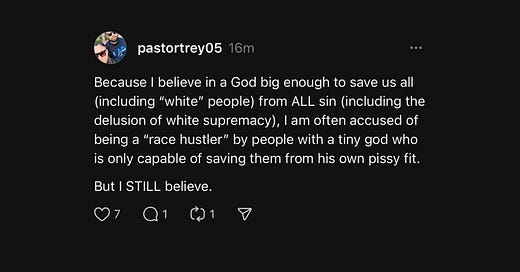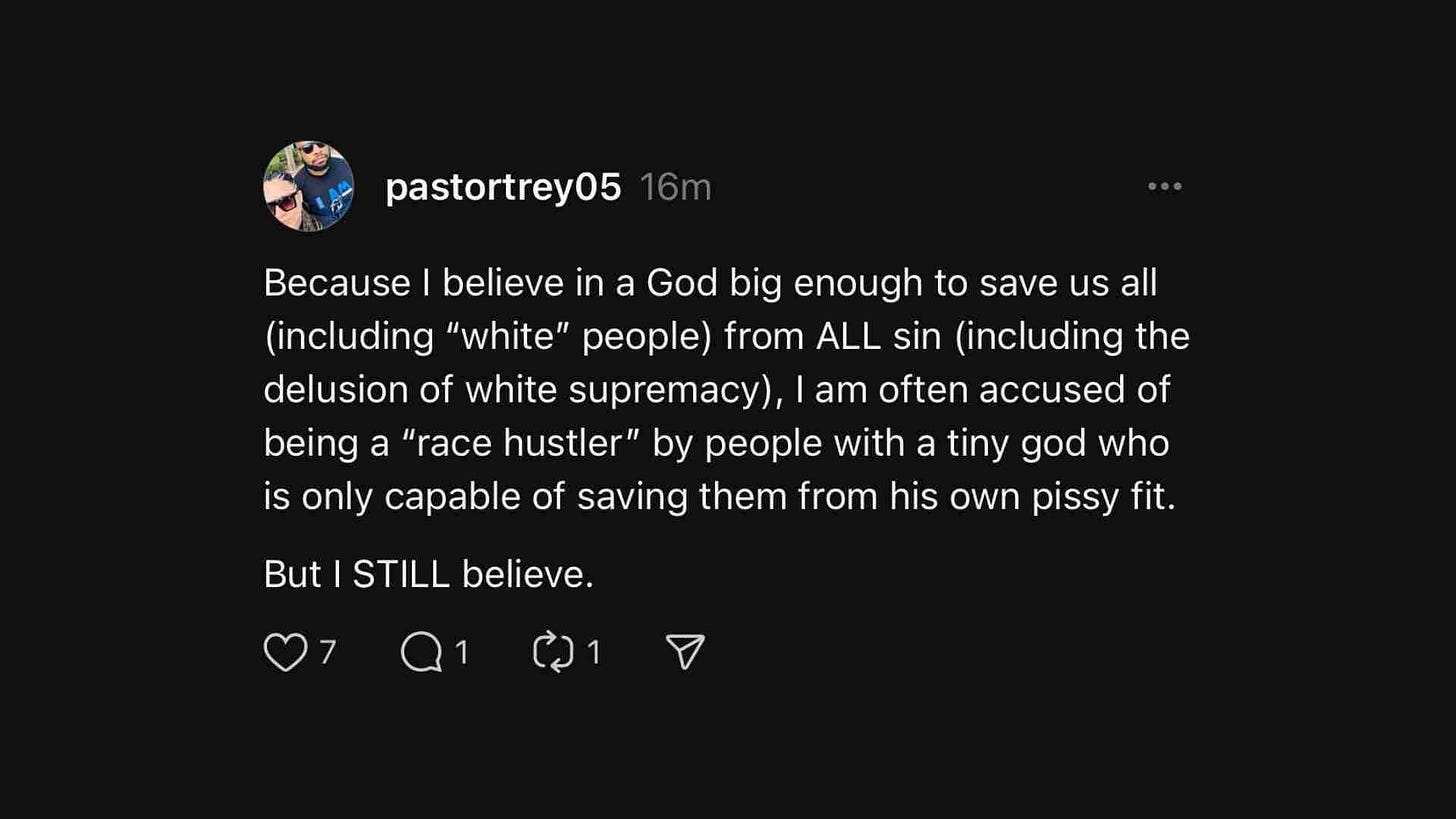On "Sin" and Other Hollow Rhetoric
When you have no Good News to offer, you just say stuff. And a lot of it bolsters white supremacy.
I’m not quite sure if you heard or not, but Donald Trump won an election a couple of weeks ago. After being exiled in 2021, he’ll be returning to 1600 Pennsylvania Avenue in January of 2025.
In the meantime, he’s been assembling his cabinet. For most presidential administrations, cabinet positions are filled by people with some combination of a demonstr…
Keep reading with a 7-day free trial
Subscribe to The Son Do Move to keep reading this post and get 7 days of free access to the full post archives.





